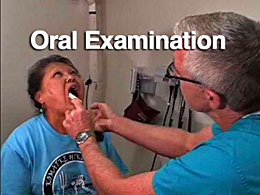Diabetes Standards of Care and Resources for Clinicians and Educators
Oral Care
People with diabetes frequently have problems with their teeth and gums, especially when they have poor glycemic control. The higher the blood glucose, the greater the risk for developing periodontal disease. American Indian and Alaska Native (AI/AN) people with diabetes have two to three times more advanced periodontal disease than people who do not have diabetes.
Resource Links
Diabetes Care Topics
Recommendations At-a-Glance
for All Topics
for All Topics
» Online version
» Print version [PDF – 269 KB]











